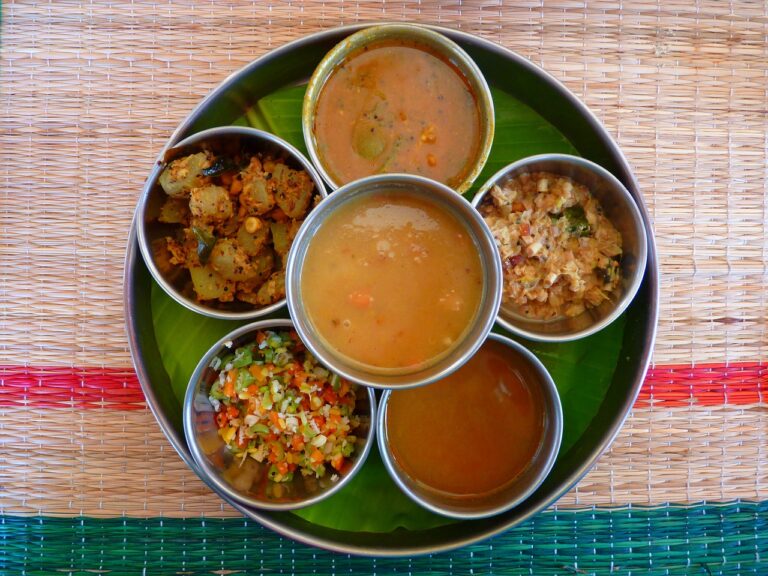Sustainable Practices in Egg Farming
all panal.com, laser247 com, yalo247:Sustainable Practices in Egg Farming
Have you ever wondered where your eggs come from and how they are produced? The egg industry plays a significant role in our food system, providing a valuable source of protein for consumers worldwide. However, like many agricultural practices, egg farming can have negative impacts on the environment if not managed sustainably.
In recent years, there has been a growing awareness of the need for more sustainable practices in egg farming. Consumers are becoming more conscious of the environmental and ethical implications of their food choices, leading to a demand for eggs that are produced in a more sustainable and ethical manner.
In this article, we will explore some of the sustainable practices that can be implemented in egg farming to reduce environmental impact, improve animal welfare, and ensure the long-term viability of the industry.
1. Organic Egg Production
One of the most widely recognized sustainable practices in egg farming is organic egg production. Organic egg farms adhere to strict regulations that prohibit the use of synthetic pesticides, antibiotics, and genetically modified organisms. Organic hens are also required to have access to outdoor pasture areas where they can forage for insects and plants, leading to a more natural and healthy diet.
2. Cage-Free Housing Systems
Another important sustainable practice in egg farming is the use of cage-free housing systems. Traditional egg farms often confine hens in small cages, leading to poor living conditions and decreased welfare. Cage-free housing systems allow hens to move more freely, exhibit natural behaviors, and have access to nesting boxes and perches. This not only improves the welfare of the hens but also reduces environmental impact by minimizing waste and emissions.
3. Pasture-Raised Eggs
Pasture-raised eggs are produced by hens that are allowed to roam freely on pastureland, where they can graze on grass, insects, and other natural sources of food. Pasture-raised eggs are often considered to be more nutritious and flavorful than conventional eggs, as the hens have a more varied diet and are exposed to natural sunlight and fresh air. This sustainable practice also benefits the environment by promoting biodiversity and reducing the need for supplemental feed.
4. Small-Scale Egg Farming
Small-scale egg farming is another sustainable practice that is gaining popularity among consumers. Small-scale farms often prioritize animal welfare, environmental stewardship, and community engagement. By producing eggs on a smaller scale, farmers can better manage resources, reduce waste, and build relationships with local consumers. Small-scale egg farming also promotes agricultural diversity and resilience, making the food system more robust and sustainable.
5. Regenerative Agriculture
Regenerative agriculture is a holistic approach to farming that focuses on restoring and enhancing the health of the soil, plants, animals, and ecosystems. In egg farming, regenerative practices can include rotational grazing, cover cropping, and carbon sequestration. By improving soil health, water retention, and biodiversity, regenerative agriculture can help mitigate climate change, protect natural resources, and promote sustainable egg production.
6. Renewable Energy
Implementing renewable energy sources, such as solar panels or wind turbines, on egg farms can help reduce energy costs and greenhouse gas emissions. By producing clean energy on-site, egg farmers can lower their carbon footprint and contribute to a more sustainable food system. Renewable energy also provides a reliable and resilient source of power, reducing the reliance on fossil fuels and grid electricity.
7. Water Conservation
Water is a precious resource that is essential for egg production, as both hens and crops require adequate hydration. Implementing water conservation practices, such as drip irrigation, rainwater harvesting, and water reuse systems, can help reduce water usage and minimize environmental impact. By using water more efficiently, egg farmers can protect local ecosystems, support biodiversity, and ensure the long-term sustainability of their operations.
8. Waste Management
Managing waste is a critical aspect of sustainable egg farming, as high levels of waste can lead to pollution, nutrient runoff, and greenhouse gas emissions. Implementing composting, recycling, and manure management systems can help minimize waste and optimize resource utilization. By turning waste into valuable resources, such as fertilizer or energy, egg farmers can reduce environmental impact and improve the overall sustainability of their operations.
9. Biodiversity Conservation
Protecting and enhancing biodiversity on and around egg farms is essential for sustainable agriculture. Biodiversity conservation practices, such as planting hedgerows, creating wildlife habitat, and preserving natural areas, can support pollinators, beneficial insects, and native plants. By promoting biodiversity, egg farmers can improve soil health, pest control, and ecosystem resilience, leading to more sustainable and productive farming systems.
10. Fair Labor Practices
Ensuring fair labor practices on egg farms is an important aspect of sustainability, as the welfare of farm workers is closely tied to the welfare of animals and the environment. Providing safe working conditions, fair wages, and access to benefits can help attract and retain skilled employees, leading to a more stable and productive workforce. Fair labor practices also contribute to social sustainability, promoting equity, diversity, and inclusion within the agricultural industry.
FAQs
Q: Are organic eggs really better for the environment?
A: Yes, organic eggs are produced using sustainable practices that prioritize environmental stewardship, animal welfare, and ecosystem health. By avoiding synthetic inputs and promoting biodiversity, organic egg production can reduce environmental impact and support a more sustainable food system.
Q: What is the difference between cage-free and free-range eggs?
A: Cage-free eggs come from hens that are not confined to small cages but may still be housed indoors. Free-range eggs come from hens that have access to outdoor areas where they can roam and forage. Both systems offer improved welfare compared to conventional cage systems, but free-range systems provide hens with more natural behaviors and environmental enrichment.
Q: How can consumers support sustainable egg farming practices?
A: Consumers can support sustainable egg farming practices by purchasing eggs from local, organic, cage-free, or pasture-raised sources. Buying eggs from small-scale farmers, farmers markets, or community-supported agriculture (CSA) programs can help promote sustainable agriculture and strengthen local food systems. It is also important to educate yourself about sustainable food choices and advocate for policies that support sustainable farming practices.
In conclusion, sustainable practices in egg farming are essential for reducing environmental impact, improving animal welfare, and ensuring the long-term viability of the industry. By implementing organic production, cage-free housing systems, pasture-raised eggs, small-scale farming, regenerative agriculture, renewable energy, water conservation, waste management, biodiversity conservation, and fair labor practices, egg farmers can promote sustainability, resilience, and social responsibility within the food system. As consumers, we have the power to support sustainable egg farming practices by choosing products that align with our values and advocating for policies that prioritize environmental and ethical considerations. Together, we can create a more sustainable and equitable food system for future generations.







